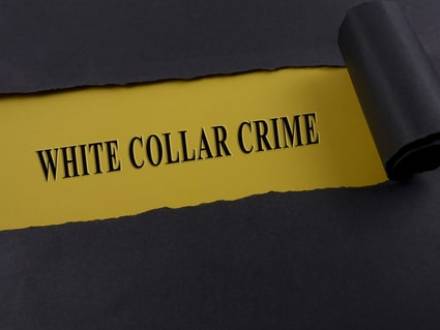What Are the Best Defenses Against White-Collar Crimes?
 Although white-collar crimes are generally considered to be non-violent crimes that often have no single victim like other criminal offenses, the consequences of a white-collar crime conviction can be both serious and long-term. Many white-collar crimes rely heavily on information and evidence gathered from computers.
Although white-collar crimes are generally considered to be non-violent crimes that often have no single victim like other criminal offenses, the consequences of a white-collar crime conviction can be both serious and long-term. Many white-collar crimes rely heavily on information and evidence gathered from computers.
Since computer information can be manipulated, it is important that prosecutors ensure digital traces have not been falsified or insufficiently documented and that the evidence is handled and distributed securely. Many white-collar crimes are charged federally because of the use of the Internet and computers or when a crime otherwise crosses a state line.
Federal resources tend to be more abundant than state resources, and federal penalties are much harsher than state penalties. If you are facing federal white-collar criminal charges, it is extremely important that you choose a Dallas, TX white-collar crimes lawyer who has extensive experience defending against federal charges.
What Are the Most Common Federal White-Collar Crimes?
White-collar crimes can damage your reputation and land you behind bars for a significant amount of time. While these charges may be considered "less serious" than other criminal charges, most of them are felony offenses that can have far-reaching consequences. The most common types of federal white-collar crimes include:
- Embezzlement
- Money laundering
- Insurance fraud
- Mortgage fraud
- Wire fraud
- Insider trading
- Securities fraud
- Identity theft
- Tax fraud
- Healthcare fraud
- Counterfeiting
- Bankruptcy fraud
- Extortion
- Racketeering
- Forgery
- Cybercrimes
- Mail fraud
What Are the Best Defenses to Federal White-Collar Crimes?
Every crime requires certain "elements" that must be proven by the prosecution. For most white-collar crimes, one element involves intent. The prosecution must show that the defendant deliberately and knowingly engaged in wrongdoing and that the "crime" was not just a mistake. The lack of defense shows that a defendant had no intention of breaking the law or was unaware that his or her actions were illegal. Other common defenses include:
- The defense attorney may see that the prosecutor’s case is weak, circumstantial, or inconsistent. The case can then be challenged based on insufficient evidence that includes solid proof rather than assumptions.
- Duress is a defense that can be implemented when a defendant can prove he or she was forced to commit a crime because of threats or pressure from another person. If the defendant only acted illegally out of fear for his or her safety, a conviction may be avoided.
- Asserting a Fourth Amendment violation can be a valid defense to federal white-collar crime charges. The government cannot conduct unreasonable searches and seizures and must have a warrant to gather evidence.
- Involuntary intoxication by drugs or alcohol could be an effective affirmative defense because it precludes intent.
- The statute of limitations gives the government a specific amount of time to bring charges and prosecute a crime. If the government exceeds this time, the defense attorney may be able to have the charges dropped.
- Entrapment can be a defense when the government uses tactics that induce, persuade, or coerce a person into committing a crime they would not ordinarily have committed. Entrapment is a defense that is rarely used because it is difficult to prove.
Federal white-collar penalties are particularly harsh. For example, a conviction in federal court of money laundering can result in 20 or more years in federal prison and fines as large as $500,000, or twice the amount of money that was laundered, whichever is greater.
Contact a Dallas, Texas Federal White-Collar Crimes Lawyer
It is rarely ever a good idea to attempt to defend yourself against white-collar criminal charges. A Dallas, TX federal white-collar crimes attorney from Spencer & Associates can help ensure you get an aggressive, comprehensive defense. Our attorneys have successfully handled very high-profile federal fraud defense cases, and while we avoid litigation when possible, we are always willing to fight for you in court. Call 214-385-8500 to schedule your free consultation.




